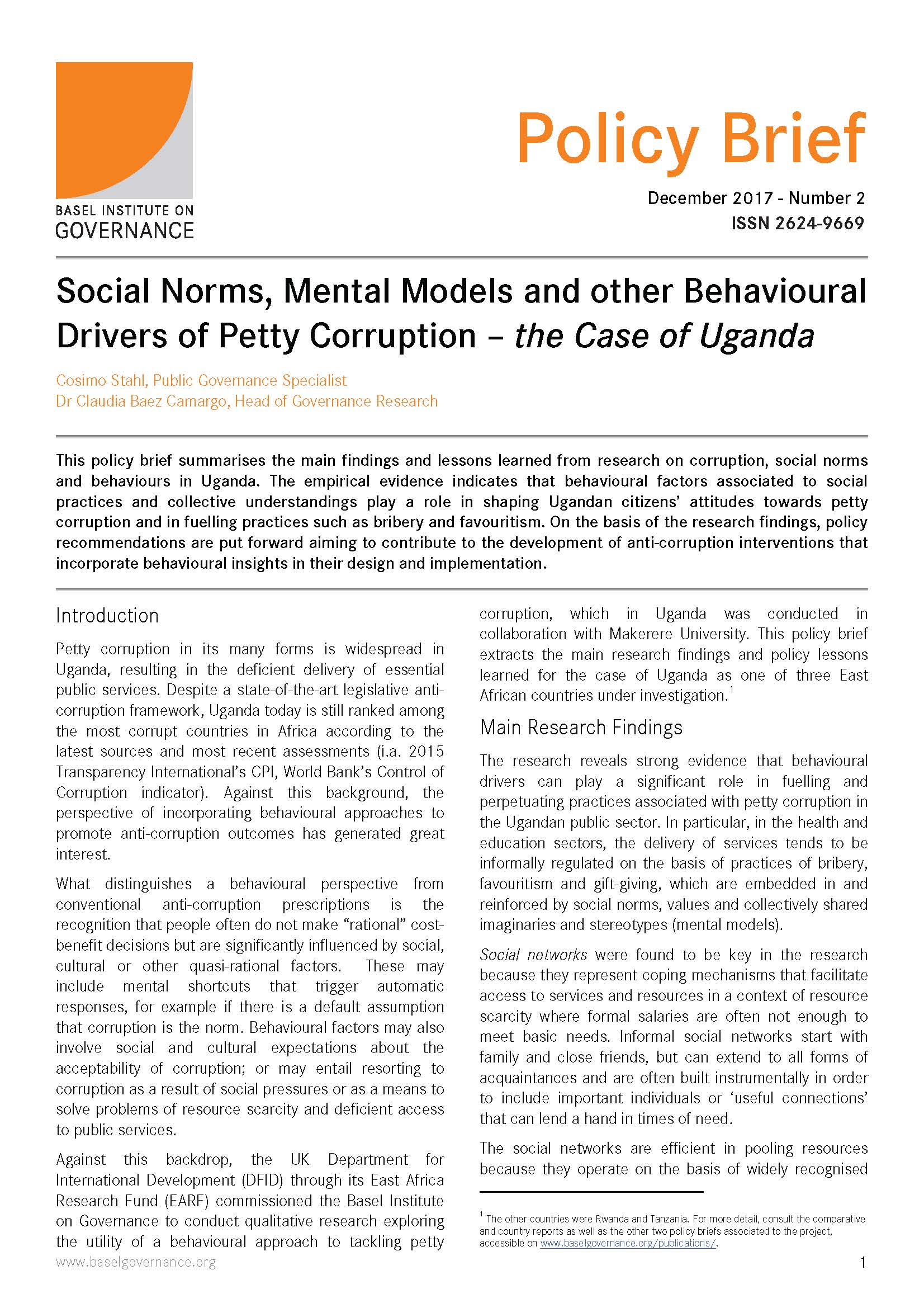Policy Brief 2: Social norms, mental models and other behavioural drivers of petty corruption
The case of Uganda
Keywords:
social norms, social networks, anti-corruption interventions, corruption research, behavioural research, anti-corruption strategies, UgandaAbstract
This policy brief summarises the main findings and lessons learned from research on corruption, social norms and behaviours in Uganda. The empirical evidence indicates that behavioural factors associated to social practices and collective understandings play a role in shaping Ugandan citizens’ attitudes towards petty corruption and in fuelling practices such as bribery and favouritism.
On the basis of the research findings, policy recommendations are put forward aiming to contribute to the development of anti-corruption interventions that incorporate behavioural insights in their design and implementation.

Downloads
Published
How to Cite
Issue
Section
License
Copyright (c) 2017 Basel Institute on Governance

This work is licensed under a Creative Commons Attribution-NoDerivatives 4.0 International License.

